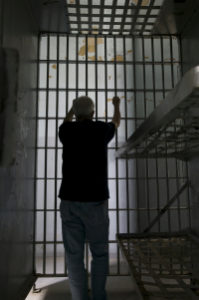News Release: Prisoners without immigration status in Canada win human rights
Prisoners’ Legal Services – Burnaby BC – October 22, 2018
On October 18, 2018, the Federal Court of Appeal decided that federal prisoners without immigration status in Canada are protected by the Canadian Human Rights Act.
The Act protects the human rights of individuals who are “lawfully present in Canada”. A previous decision of the Federal Court of Appeal found that prisoners must have immigration status in Canada to be protected by the Act. Thursday’s decision finds that the previous decision was wrongly decided, and acknowledges that individuals who are serving sentences in Canadian prisons are lawfully present in Canada, and are protected by human rights law.
Prisoners’ Legal Services represented Kien Beng Tan in the case. Mr. Tan is a federal prisoner who is a citizen of Malaysia and a practicing Buddhist. He filed a human rights complaint when he and others were denied access to minority faith chaplains in prison. The Canadian Human Rights Commission refused to consider his complaint because it considered him not to be lawfully present in Canada.
The Honourable Justice Rennie wrote the majority decision. He found that Mr. Tan is lawfully present in Canada because he is serving a sentence to a term of imprisonment in Canada, which is authorized by the Criminal Code and theCorrections and Conditional Release Act. The stay of his removal order under the Immigration and Refugee Protection Act, and the fact that his entry to Canada was authorized under the Extradition Act also indicate that his presence in Canada is lawful.
Mr. Justice Rennie departed from the previous Federal Court of Appeal decision, quoting Lord Denning for the principle that “[t]he doctrine of precedent does not compel [us] to follow the wrong path until [we] fall over the edge of a cliff”.
The Federal Court of Appeal notes that if it did not depart from the previous decision, Mr. Tan could be required to remain in prison for his entire life “under the greatest restriction of liberty and government control possible, in all aspects of life and wellbeing, yet cannot make a human rights complaint merely because he does not hold some form of immigration status and is subject to a deportation order if ever he is released.”
The court found it would create an absurd consequence to deprive a prisoner without immigration status of human rights protections, when a Canadian prisoner, could make a human rights complaint for the same discrimination, even if the former was serving a life sentence and the latter a short sentence.
“I am very glad that people who had no human rights protections in Canadian prisons now have rights. I am thankful that my case will help other people like me,” said Mr. Tan.
Fadi Yachoua, lawyer and co-founder at Embarkation Law Corporation, and Prisoners’ Legal Services Executive Director, Jennifer Metcalfe, represented Mr. Tan in the appeal.
“This is a good day for human rights in Canada. Prisoners without immigration status are some of the most vulnerable and marginalized members of our society, and now they are protected by human rights law,” said Ms. Metcalfe.
“We are thrilled that the Canadian Human Rights Act will be applied fairly going forward, and that prisoners in federal penitentiaries, be they Canadian citizens or foreign nationals, can file human rights complaints if they experience discrimination,” said Mr. Yachoua.
The federal government supported Mr. Tan’s interpretation of the Canadian Human Rights Act to include foreign national prisoners serving a sentence in Canada under its protections.
Click here to read the decision Tan v. Canada (Attorney General), 2018 FCA 186.
Prisoners’ Legal Services
302-7818 6th Street
Burnaby, BC
Tel: 604-636-0470
Fax: 604-636-0480
Email: info@pls-bc.ca

We are grateful for the
funding provided by

How to Show Your Support
Help us to continue to fight for the human rights of prisoners in BC! PLS is currently litigating the important systemic issues of the segregation of prisoners with mental disabilities, access to health care, transgender prisoner rights, and access to religion and Indigenous spirituality. We need help to continue to do this important work. Donations to West Coast Prison Justice Society are non-charitable and are not tax deductible.
Donations can be made to
West Coast Prison Justice Society
Please call us at 604-636-0470 or email us at info@pls-bc.ca if you would like to discuss your donation.
Thanks for your support!

Submissions regarding Canada’s Third Universal Periodic Review
Submissions regarding Canada’s Third Universal Periodic Review
On July 16, 2018, PLS attended a meeting with representatives from the Department of Canadian Heritage regarding Canada’s United Nations Human Rights Council third universal periodic review of Canada. 107 member states participated in Canada’s review and made 275 recommendations for Canada to improve its human rights record. PLS identified the recommendations that highlighted the issues faced by prisoners in Canada and provided a written submission.
Prisoners’ Legal Services
302-7818 6th Street
Burnaby, BC
Tel: 604-636-0470
Fax: 604-636-0480
Email: info@pls-bc.ca

We are grateful for the
funding provided by

How to Show Your Support
Help us to continue to fight for the human rights of prisoners in BC! PLS is currently litigating the important systemic issues of the segregation of prisoners with mental disabilities, access to health care, transgender prisoner rights, and access to religion and Indigenous spirituality. We need help to continue to do this important work. Donations to West Coast Prison Justice Society are non-charitable and are not tax deductible.
Donations can be made to
West Coast Prison Justice Society
Please call us at 604-636-0470 or email us at info@pls-bc.ca if you would like to discuss your donation.
Thanks for your support!
PLS appears before the Senate Standing Committee on Human Rights
PLS appears before the Senate Standing Committee on Human Rights
 On August 11, 2018, Prisoners’ Legal Services appeared before the Senate Standing Committee on Human Rights for its study on the human rights of prisoners in Canada. We recommend that Canada invest in community-based alternatives to incarceration, and to provide trauma-informed mental health services to prisoners with mental health issues. We call on the government to abolish solitary confinement. You can read our written brief here.
On August 11, 2018, Prisoners’ Legal Services appeared before the Senate Standing Committee on Human Rights for its study on the human rights of prisoners in Canada. We recommend that Canada invest in community-based alternatives to incarceration, and to provide trauma-informed mental health services to prisoners with mental health issues. We call on the government to abolish solitary confinement. You can read our written brief here.
Prisoners’ Legal Services
302-7818 6th Street
Burnaby, BC
Tel: 604-636-0470
Fax: 604-636-0480
Email: info@pls-bc.ca

We are grateful for the
funding provided by

How to Show Your Support
Help us to continue to fight for the human rights of prisoners in BC! PLS is currently litigating the important systemic issues of the segregation of prisoners with mental disabilities, access to health care, transgender prisoner rights, and access to religion and Indigenous spirituality. We need help to continue to do this important work. Donations to West Coast Prison Justice Society are non-charitable and are not tax deductible.
Donations can be made to
West Coast Prison Justice Society
Please call us at 604-636-0470 or email us at info@pls-bc.ca if you would like to discuss your donation.
Thanks for your support!
BC College of Physicians and Surgeons must address ethical issues surrounding solitary confinement
August 13, 2018 – Burnaby BC – Prisoners’ Legal Services
On August 9, 2018, the Health Professions Review Board issued an important decision requiring the BC College of Physicians and Surgeons to directly confront the issue of medical professionals’ ethical duties under the United Nations’ Standard Minimum Rules for the Treatment of Prisoners (the Mandela Rules) related to solitary confinement.
Brent Crane, a prisoner who was held in long-term solitary confinement at a BC Corrections pretrial centre, brought a complaint to the College that alleged a psychiatrist violated professional standards when she failed to consider the Mandela Rules in her treatment of him. Mr. Crane argued that the Mandela Rules gave expression to the Canadian Medical Association’s Code of Ethics duty to “refuse to participate in or support practices that violate basic human rights”.
Mr. Crane is an Indigenous prisoner. His mother was in residential school and he experienced violence as a child. He has been diagnosed with schizophrenia and major depression with anxiety. His medical records also indicate that he likely suffers from Fetal Alcohol Spectrum Disorder.
The Mandela Rules prohibit solitary confinement for prisoners with mental disabilities when their condition would be exacerbated by its use, and for anyone for more than 15 days, as this is considered to be torture or cruel treatment. The Mandela Rules require physicians not to participate actively or passively in torture or cruel treatment, to report a prisoner’s physical or mental deterioration in solitary confinement to the prison warden and to the competent authority, and to advise the warden if the physician considers it necessary to terminate solitary confinement.
Mr. Crane’s medical records contained multiple notations from other medical professionals that he was exhibiting symptoms associated with long-term solitary confinement, including anxiety, depression, anger, cognitive disturbances, perceptual distortions, paranoia and psychosis.
“I don’t feel well in solitary confinement,” said Mr. Crane in his affidavit. “I don’t have anything. I’m by myself in isolation…I feel trapped,” he reports.
The complaint alleged that the psychiatrist participated in Mr. Crane’s solitary confinement by cancelling his certification, which would have allowed him to move from solitary confinement to a psychiatric hospital, by failing to report his mental health deterioration to anyone, and by failing to document the negative psychological effects of prolonged solitary confinement on him.
“Medical professionals who work in prisons may become coopted by the security-focussed perspective of correctional officers. We are hopeful that this decision will empower medical professionals to advocate for the wellbeing of their patients who are in solitary confinement,” said Jennifer Metcalfe executive director of Prisoners’ Legal Services.
“The majority of prisoners who are held in solitary confinement suffer from mental disabilities and have a history of trauma and addiction. These are the people most in need of compassionate treatment by medical professionals. These prisoners need therapeutic services and environments to heal so that they can succeed when they are returned to the community,” she said.
In Mr. Crane’s case, the College dismissed his complaint and its Inquiry Committee found the psychiatrist’s conduct and competence satisfactory.
The Health Professions Review found that the Inquiry Committee “failed to confront the key issues” of the application of the Mandela Rules. It found that “the fact that the Inquiry Committee’s findings might have wider systemic implications did not diminish that duty” to “confront the issues of professional responsibility concerning the protection of ‘basic human rights’”.
The psychiatrist in this case argued that a finding could not have been made against her by the College’s Inquiry Committee unless she “was aware of and shared the view that his human rights were being violated”. The Health Professions Review Board questioned whether this was the appropriate test for compliance with professional standards, noting: “In order for the Inquiry Committee to accept the position of the Registrant…it would have to accept that the Mandela Rules, and torture as defined therein, are only applicable where a treating physician agrees with them”.
When the Mandela Rules came into effect in 2015, Prisoners’ Legal Services wrote to the BC College of Physicians and Surgeons requesting that they issue guidelines about them for their members who work with prisoners. The College responded saying that it would not issue such guidelines, but would investigate any complaints regarding the care provided by their members to prisoners.
The Health Professions Review Board decision suggests that the College should revisit the idea of issuing standards or guidelines in relation to the application of the Mandela Rules to physicians working with prisoners.
“Prisoners’ Legal Services would be happy to assist the College to develop guidelines for its members to ensure they are acting in the best interests of their patients, and not participating in their torture or cruel treatment”, said Metcalfe.
“I am glad that my case can help other people who are in solitary confinement,” said Mr. Crane. “I don’t want anyone to feel sorry for me. I just want my case to help other people.”
Click here to see the Health Professions Review Board decision in this case.
http://www.hprb.gov.bc.ca/decisions/2016-HPA-235(b).pdf
Media Contact:
Jennifer Metcalfe
Executive Director
Prisoners’ Legal Services
jmetcalfe@pls-bc.ca
604-636-0470

We’re hiring! Contract Lawyer/Prisoner Legal Education Project
We’re hiring! Contract Lawyer/Prisoner Legal Education Project
Prisoners’ Legal Services (PLS) is looking for a passionate, problem solving, empathetic and dedicated lawyer for a 10-month contract position. We are a small non-profit society providing legal services to federal and provincial prisoners in the province of British Columbia.
The position has two components: responsibility for the Prisoner Legal Education Project and parental leave coverage for our staff lawyer/legal advocate.
Prisoner Legal Education Project: PLS produces legal education materials for prisoners on a range of topics to help clients pursue issues on their own. The contract lawyer would be responsible for reviewing our current materials for legal accuracy and for developing new materials on issues such as transgender prisoner rights, mother-child programs in prison, and making complaints to medical professional colleges.
Staff Lawyer/Legal Advocate: The staff lawyer/legal advocacy component involves providing advocacy to prisoners regarding prison legal issues, including and especially the prison disciplinary process. It also involves supervising PLS’ four other legal advocates.
Advocacy work is primarily done by telephone, fax and email. Advocacy on behalf of prisoners may involve summary advice, informal advocacy, providing written submissions and personal representation at tribunals.
Legal advocates have conduct of client files and are responsible for ensuring day-to-day tasks are scheduled and performed within relevant timeframes. This position also involves reviewing and determining the legal merit of cases and the level of service to be provided. At times it will also require the direction and supervision of the other legal advocates’ work.
This position would have a great deal of contact with prisoners, prison administrators and parole authorities.
This position requires frequent travel to prisons in the Lower Mainland and Fraser Valley. Access to a vehicle is essential. A CPIC clearance is required to visit prisons.
Basic Qualifications:
- Must be called to the bar in BC;
- Strong legal research and writing skills, including the ability to write effectively for lay audiences; and
- Strong verbal and interviewing skills.
Skills and Abilities
- Ability to be a strong advocate for disadvantaged clients, including those with low income, those with mental disabilities, or those whose first language is not English;
- Ability to work well with others in a team setting;
- Ability to negotiate and find creative solutions to prisoners’ legal problems;
- Ability to exercise excellent judgment in matters of ethics and confidentiality;
- excellent communication and interpersonal skills, in particular in dealing with prisoners, lawyers, and prison and parole officials;
- Superb organization skills with strong follow-through and the ability to meet deadlines.
- Familiarity with general software applications (e.g. MS Word, Outlook);
- Willingness to assist those convicted of various crimes in a non-judgmental way; and
- Second language or demonstrated awareness of the cultural diversity of prisoners an asset.
Closing date: interviews will be scheduled after July 6, 2018
Start date: ASAP
Interested applicants should submit a covering letter together with a résumé outlining how their qualifications meet the position requirements to:
Jennifer Metcalfe, Executive Director
Prisoners’ Legal Services/ West Coast Prison Justice Society
Tel: (604) 636-0470
Fax: (604) 636-0480
Email: jmetcalfe@pls-bc.ca
***Also check out the other position we’re hiring for here ***
Prisoners’ Legal Services
302-7818 6th Street
Burnaby, BC
Tel: 604-636-0470
Fax: 604-636-0480
Email: info@pls-bc.ca

We are grateful for the
funding provided by

How to Show Your Support
Help us to continue to fight for the human rights of prisoners in BC! PLS is currently litigating the important systemic issues of the segregation of prisoners with mental disabilities, access to health care, transgender prisoner rights, and access to religion and Indigenous spirituality. We need help to continue to do this important work. Donations to West Coast Prison Justice Society are non-charitable and are not tax deductible.
Donations can be made to
West Coast Prison Justice Society
Please call us at 604-636-0470 or email us at info@pls-bc.ca if you would like to discuss your donation.
Thanks for your support!

